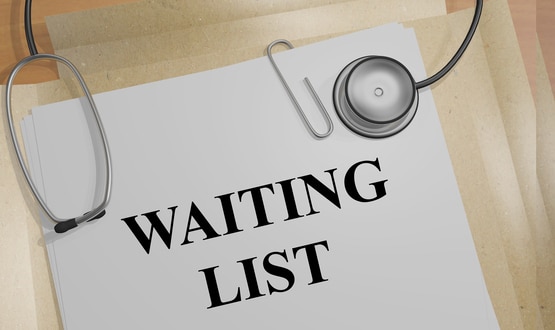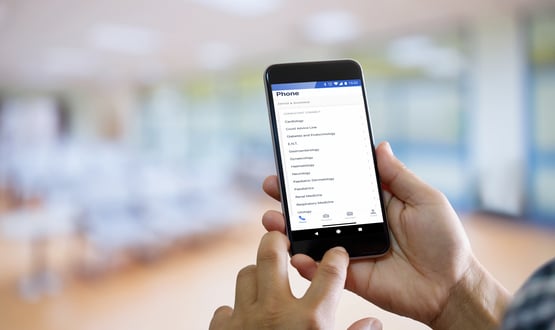George Eliot Hospital signs with Accurx for patient communication platform
- 21 November 2023

Accurx has been selected by George Eliot Hospital for a trust-wide partnership that uses a patient communication platform to tackle waiting lists and help to transform the cancer pathway.
The partnership follows on from a five-month trial of Accurx in the Rheumatology department, where the software was used to administratively validate patients on the follow-up waiting list. As a result of that trial, eight percent of patients who no longer required care were removed from the list.
The initial scope of the partnership will be to validate patients on waiting lists for elective recovery and outpatient transformation, as well as transform cancer pathways.
All services at George Elliot Hospital are using the Accurx Batch Messaging software to validate their RTT admitted and non-admitted waiting lists. Patients who are waiting over 10 weeks receive a text message to determine if they still require an appointment. If they respond yes, they remain on the RTT pathway. If they say no and give a reason why care is no longer required, the trust can make a decision to safely remove them from the waiting list.
If a patient is removed from the waiting list, a letter is sent to the doctor and their GP to clarify.
So far, 400 patients have already responded saying they no longer require their appointment, allowing the trust to approve their discharge and remove them from the waiting list. By December, George Eliot Hospital hopes to have removed at least 600 patients from waiting lists.
Just last month Accurx integrated its batch messaging feature to the NHS App, allowing GPs to send the same message or documents to a large cohort of patients.
Promoting digital cancer pathways
As well as streamlining waiting lists, George Eliot Hospital is also introducing digital ways of working to the colorectal cancer pathway to improve performance against the 28 day Faster Diagnosis Standard. This standard aims to ensure that 75% of patients referred for cancer investigation, either receive a diagnosis or have the possibility of cancer excluded with 28 days, by March 2024.
To help with this, digital patient leaflets are being sent upon referral to help ensure patient readiness for investigations and scans and increase pathway engagement. Digital questionnaires are being used to collect information early on in referral journeys so healthcare teams can make informed decisions. In addition, non-cancer diagnoses are being sent by text message as well as clinic letters to support early discharge and improve patient experiences.
The results of this project will help to inform the rollout of Accurx to the remaining cancer pathways.
Dr Satya Raghuvanshi, VP of clinical at Accurx, said: “This partnership will ensure that George Eliot Hospital is able to reduce their waiting list so that patients who do require care can be seen faster, as well as introduce digital ways of working to transform cancer care, improve patient communication and free up staff time.”
The partnership has been part-financed by Coventry and Warwickshire Integrated Care Board funding to support Waiting List Validation initiatives in the region.



